CSDE Science Core – Upcoming Workshops: Biomarkers, Statistics & R, Online Surveys & REDCap, Accessing Federal Data
|
In the upcoming quarter, CSDE will be hosting four workshops and one ‘lunch and learn’ event to facilitate researchers’ adoption of new methods and data to accelerate research programs. These workshops include an overview of portable biomarker data collection in the field, accessing federal statistical data, developing online surveys using REDCap, conducting statistical analysis with R, and an introduction to data options for research on older adults.
Each quarter, CSDE offers 3-5 workshops on data sources, statistical and biomarker methodology, introductions to analysis programs, and more, all given by CSDE staff and faculty affiliates. These workshops can include hands-on training in novel methods and programming, lectures on innovative data sources, and discussions of important issues in research and data collection. Over the course of the academic year, CSDE will offer a diverse and exciting set of workshops, some of which will be offered in person and others remotely via Zoom. Students, faculty, and staff are all welcome to register for our workshops and we welcome registrants from outside the University of Washington for our remote workshops as well.
You can find our workshop website and register for our Winter 2024 workshops in the links below. We will be filling in our schedule for Spring workshops soon, so stay tuned!
Please reach out to CSDE’s Training Director, Jessica Godwin (jlg0003@uw.edu), if you have additional workshops you would like to see offered in the future and we will do our best to accommodate those requests.
Winter Workshops
(read more)
|
 |
Many CSDE-Relevant Grant Opportunities at NICHD!
|
The NICHD has listed many grant opportunities that should be of interest to CSDE affiliates. Check out the list here. If you are interested, CSDE can help you with providing ‘eyes’ for feedback on the narrative, contacting a program officer, more formalized mock review panel of experts to provide feedback on a penultimate draft, a summer grant writing program, or scientific methods consultations. We’re happy to support your science! Just ask!
(read more)
|
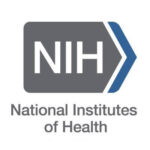 |
*Revised date* CSDE Computational Demography Working Group (CDWG) Hosts Elizabeth Pelletier on the Effects of WA’s Paid Family and Medical Leave Policy on Maternal Employment (2/21/24)
|
On February 7th from 3-4pm, Elizabeth Pelletier, PhD candidate at the Evans School of Public Policy & Governance, and CSDE T32 fellow, will present at the CDWG on Feb. 21st from 3:00-4:00pm. CDWG Will be Hybrid in Winter Quarter 2024. Attend in-person in Raitt 223 (The Demography Lab) or on Zoom (register here). Pelletier will present research, titled “The Effects of Washington’s Paid Family and Medical Leave Policy on Maternal Employment”. Read more in the full story!
(read more)
|
 |
*New* CSDE Computational Demography Working Group (CDWG) Hosts Connor Gilroy on Methods of Political Forecasting and Career Development (02/28/24)
|
Connor Gilroy, a UW Sociology PhD and machine learning data scientist at Blue Rose Research, will give a general overview of some of the methods and tools he uses in his current political forecasting work. He will also share some background on his recent transition from academia to industry, including the computational research involved in his dissertation on LGBTQ community, his internships and consulting work with Meta and the World Bank, and his experiences navigating the job market. CDWG Will be Hybrid in Winter Quarter 2024. Attend in-person in 223 Raitt or on Zoom (register here).
(read more)
|
 |
*New* Applications open for the Population Health Applied Research Fellowship Program (Info session on 3/4, Applications due 3/29)
|
Applications are now open for the Population Health Applied Research Fellowship Program. This program is run in partnership between the Population Health Initiative and CSDE. The 10-week program is open to graduate and professional students from all UW schools and colleges. The program supports multidisciplinary teams of UW graduate and undergraduate students to work on real-world population health challenges. Projects are sourced from external clients who play an important role in structuring project deliverables. The project team receives training in research skills and data collection, analysis and presentation to deliver a work product that meets the external client’s needs. An informational session will be held for interested applicants from 12 – 1 p.m. on March 4, 2024, in the Hans Rosling Center for Population Health. A virtual option is available. Please RSVP via the following link: https://forms.gle/fDwjLLwYVQXWdDYG8.
(read more)
|
 |
CSDE Population Research Planning Grants (PRPGs) (Rolling deadline)
|
Population Research Planning Grants (PRPGs) are designed to provide in-kind support and/or funds of up to $25k* to support a wide array of activity types throughout the development of a research project. As part of our mission to complement rather than duplicate other campus opportunities such as the Population Health Initiative seed grants,we will consider funding a variety of activities. See a list of example activities in the full story!
(read more)
|
 |
CSDE Matching Support to Supplement On-campus Funding (Rolling deadline)
|
CSDE Matching Support includes in-kind or monetary support to accompany a submission to other on-campus funding mechanism, such as PHI, EarthLab, or Urban@UW. All projects must have a CSDE affiliate who is UW faculty and is listed as a PI or co-PI, with any number of other collaborators. Note that we require (PRPGs) or strongly suggest (matching funds) contacting either Development Core Director (Steven Goodreau) or CSDE Director (Sara Curran) to discuss possibilities for your specific proposal before submission.
(read more)
|
 |
*New* IPUMS Data (updates to IPUMS USA, CDOH, and CPS)
|
IPUMS recently announced the release of the 5-year ACS microdata from IPUMS USA, topical supplement data from IPUMS CPS, extended coverage of IPUMS Contextual Determinants of Health measures. Learn more in the full story.
(read more)
|
 |
*New* Issue of Demography
Read the latest issue here!
(read more)
*New* Issue of Journal of Demographic Economics
Check out the most recent issue here.
(read more)
*New* Issue of Journal of Ethnic and Migration Studies
Read the new issue here.
(read more)
*New* Registration Now Open for ICPSR’s Summer Program (sessions available May-Aug. 2024)
|
Registration for the ICPSR Summer Program in Quantitative Methods is now open for their topical workshops and general session. Their general sessions run from June 10-July 5, and from July 8-August 2. Topical Workshops cover a single subject and run for either 20 or 40 hours in just three, five, or ten days, and run from May through August. Sessions and workshops are available online and in-person at the University of Michigan.
(read more)
|
 |
NSF-NIH joint funding opportunity on Incorporating Human Behavior in Epidemiological Models (Due Feb 1-14, 2024)
|
The NSF and NIH is offering awards as part of the The Incorporating Human Behavior in Epidemiological Models (IHBEM) Program. The IHBEM Program supports research that incorporates research on social and behavioral processes in mathematical epidemiological models. The program provides support for projects that involve balanced participation from the mathematical sciences and from the social, behavioral, and economic sciences. They are interested in interdisciplinary collaborations integrating research on behavioral and/or social processes in mathematical epidemiological models.
(read more)
|
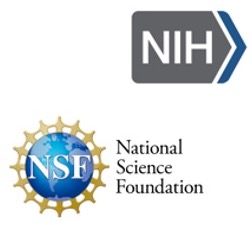 |
EarthLab and PHI Host Event on Fostering Climate Connections (2/13/24)
The Population Health Initiative and EarthLab will co-host a winter quarter climate change-focused Open Space-style event in the University of Washington wǝɫǝbʔaltxʷ – Intellectual House on Tuesday, February 13, 2024. The goal of this quarterly gathering is to help facilitate the development of new interdisciplinary collaborations between UW researchers who are seeking to take on pressing challenges related to the current climate crisis. Learn more about the event and RSVP in the full story!
(read more)
CSSS Seminar with Lizzy Pelletier: Imputing Race and Ethnicity in State Administrative Data: Challenges and Future Directions (2/14/24)
|
CSSS will be hosting CSDE Trainee Lizzy Pelletier for a seminar titled “Imputing Race and Ethnicity in State Administrative Data: Challenges and Future Directions“. The seminar will take place on Wednesday, Feb. 14th at 12:30 in 409 Savery Hall and on Zoom (register here). Lizzy Pelletier is a PhD candidate studying public policy at the Evans School of Public Policy & Governance at the University of Washington, and an NIH-supported Data Science and Demography trainee through the Center for Studies in Demography and Ecology at UW. Her research examines how public policy shapes economic inequality, instability, and wellbeing, with a current focus on paid leave policies. Her work with large administrative microdata also explores how tools from data science and computational demography can be used to make these records more useful to social scientists.
(read more)
|
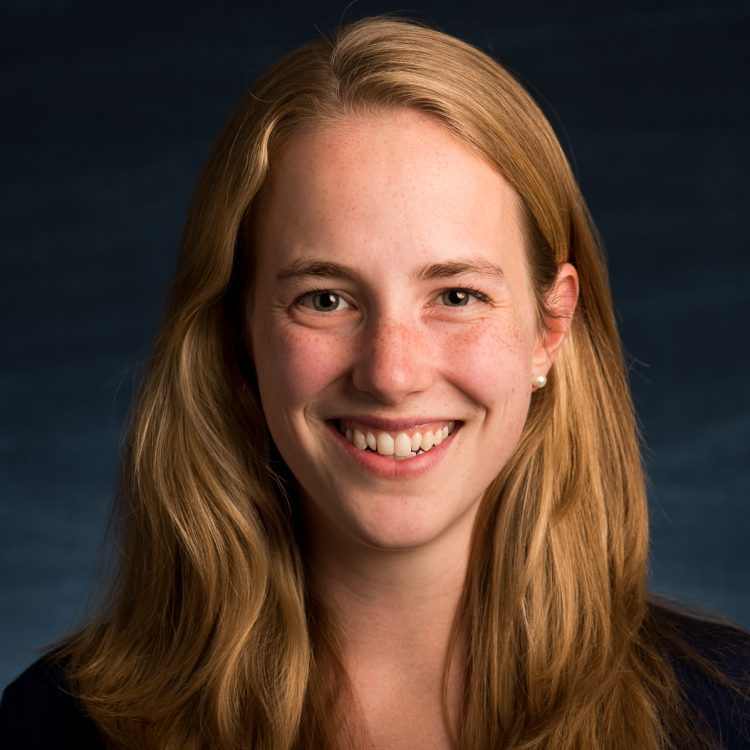 |
Call for Papers: Migration and Organizations Conference (Due 2/15/24)
|
This conference hosted by The Wharton School, University of Pennsylvania seeks to advance rigorous research and strengthen the community of scholars at the intersection of migration and organizations. Scholars from all fields, disciplines, and career stages are encouraged to submit papers or applications to attend. There will be a half-day consortium focused on career development for PhD students including small group mentoring meetings with faculty and early research development workshops. The conference will take place from May 8-9.
(read more)
|
 |
US Treasury is Seeking Research Partners to Understand Impact of State and Local Fiscal Recovery Funds (Submit form by 2/15/24)
|
The US Treasury has issued a call for research partners to help understand the impact of State and Local Fiscal Recovery Funds (SLRF). They are specifically interested in answering: What is the short-term and long-term impact on households, organizations, communities, and governments from specific State and Local Fiscal Recovery Funds (SLFRF) projects in priority policy areas such as affordable housing, workforce, and public safety? To learn more about the call visit this page.
(read more)
|
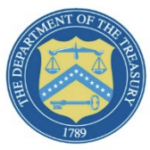 |
Hiring 1-2 Graduate Research Assistants at CERSE (Due 2/15/24)
|
The Center for Evaluation & Research for STEM Equity (CERSE) at the University of Washington is seeking 1-2 graduate research assistants to assist with multiple ongoing evaluation and research projects. The projects vary in specific focus related to broadening participation in STEM fields. CERSE conducts research, evaluation, and consulting on diversity, equity, and inclusion in STEM. We are a community-oriented team committed to increasing the participation of people from systemically marginalized groups in STEM education and careers.
(read more)
|
 |
Apply for the 2025 Dean John A. Knauss Marine Policy Fellowship (Due 2/15/24)
|
The program is open to graduate students and sponsored by the National Oceanic and Atmospheric Administration’s (NOAA) National Sea Grant College Program. It enables fellows to work for one year on congressional staff or in a federal agency, where the fellows study, implement, and even create marine policy. More than 40 agency positions and 12 congressional positions are available each year. A virtual information session will be held on Dec. 11th at 12pm (register here).
(read more)
|
 |
Attend the Film Screening of the Journeys of Black Mathematicians: Forging Resilience (2/15/24)
|
The Department of Statistics, in partnership with the Department of Mathematics, the Department of Applied Mathematics and the Simons Laufer Mathematical Sciences Institute, will be hosting a free public screening of the movie Journeys of Black Mathematicians: Forging Resilience in 110 Kane Hall on Thursday, February 15th from 6:00-8:30 PM. The screening will be followed by a Q&A session with Director George Csicsery and a reception at Kane Hall’s Walker-Ames room.
(read more)
|
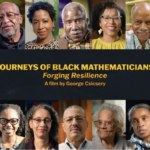 |
Seminar by UW Moris Women’s Center: Safety Across Genders (2/15/24)
|
Join the UW Moris Women’s Center for its seminar on Thursday, Feb. 15th from 3:30-5:00 PM in the Allen Library auditorium, co-sponsored by CSDE. Seminar speakers will include nikkita oliver, Ebo Barton, Randy Ford, Akoth Ombaka, whose conversation will establish a shared understanding of the threats to gender diverse and intersex communities, along with ways that campus leaders can support them. Learn more about the event in the full story and on the event page.
(read more)
|
 |
Global Mental Health Speaker Series: Global Mental Health and Climate Change (2/15/24)
|
Join the UW Consortium for Global Mental Health and the Population Health Initiative on Thursday, February 15 from 3:00-4:30pm in the Hans Rosling Center (HRC) room 101 as part of our 2023-24 speaker series on Global Mental Health. This event features a panel discussion with five experts on the mental health impacts of climate change, including CSDE Affiliate Gregory Bratman and CSDE Director Sara Curran alongside Kristie Ebi, Sherilee Harper, and Susan Clayton. The panel will be moderated by CSDE Trainee and sociology doctoral candidate, Victoria Sass. Staff, faculty, and students of all disciplines are welcome to attend this hybrid event. Reception to follow event from 4:00-4:30pm. Learn more about the event here and register at this link.
(read more)
|
 |
NIH NOSI: Administrative Supplements to Recognize Excellence in Diversity, Equity, Inclusion, and Accessibility (DEIA) Mentorship (Due 2/17/24)
|
This opportunity supports administrative supplements to existing NIH awards to support scientists who have demonstrated compelling commitments and contributions to mentorship and enhancing diversity, equity, inclusion, and accessibility (DEIA) in the biomedical sciences. Funds will support ongoing and future efforts.
(read more)
|
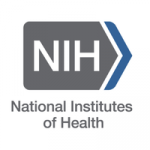 |
Attend the 2024 Future of Families Summer Data Workshop (Due 2/19/24)
The 2024 Future of Families Summer Data Workshop application form is now available and is due on Monday, Feb 19, 2024. The workshop will be held in-person from Wednesday, June 12, 2024 to Friday, June 14, 2024. Travel and hotel costs will be covered for successful applicants. The workshop is designed to familiarize participants with the data available in the Future of Families and Child Wellbeing Study (FFCWS) (formerly Fragile Families and Child Wellbeing Study), a national study following a birth cohort of (mostly) unmarried parents and their children, providing information about the capabilities, circumstances, and relationships of unwed parents, the wellbeing of their children, and the role of public policy in family and child wellbeing.
(read more)
Call for Applications: Time Use Data for Health and Well-Being Workshop (Due 2/19/24)
|
The Maryland Population Research Center is accepting applications for the 2024 Time Use Data for Health and Well-Being Summer Workshop to be held June 12, 2024, the day before the June 13 and 14 University of Maryland 2024 Time Use Conference. This workshop aims to promote awareness of and expertise in the IPUMS Time Use data archive, particularly the 2010-2012 and 2021 ATUS Well-being Module data. About 20 applicants will be selected. Travel support will be available for accepted non-local candidates.
(read more)
|
 |
Urban@UW Requests Applications for the Research to Action Collaboratory (Due 2/20/24)
|
Urban@UW is excited to announce the second round of Request for Applications (RFA) for the Research to Action Collaboratory (RAC). The RFA invites teams of community members, researchers and students across the University of Washington who are excited to co-produce actionable, community-centered research and knowledge for persistent urban-focused problems. The deadline for submitting an application is Monday, February 20, 2024, at 5:00 pm PST.
(read more)
|
 |
Accepting Applications for an NIH-funded short course @ UCI: Systems Biology Foundations (2/20-3/15/24)
|
The Systems Biology – Foundations short course is an NIH-sponsored, didactic and practical educational experience devoted to training in systems biology. The Systems Biology – Foundations course also includes teaching of collaborative skills and mentoring activities for career development. Participants may attend the online and/or the in-person course. The “Online Course” is held entirely online over the first two weeks (2/20-3/1) (off on Presidents’ Day), and the “In-person Course” is held in person, on the UC Irvine campus for the following two weeks (3/4-3/15).
(read more)
|
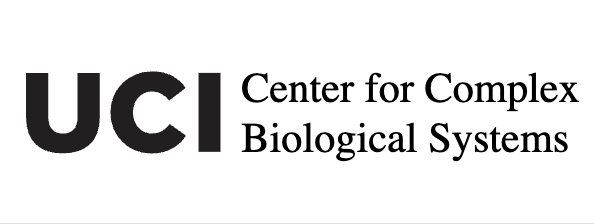 |
CSSS Seminar with Peter Catron: The Endurance of Mexico-U.S. Migration Flows (2/21/24)
|
Join CSSS for a seminar with CSDE Affiliate Peter Catron on Wednesday, Feb. 21st at 12:30 in 409 Savery Hall and on Zoom (register here). Peter Catron is an Assistant Professor of Sociology at the University of Washington. Read more about the talk here!
(read more)
|
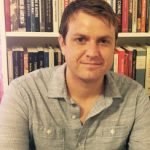 |
BIRCH Methods Core Seminar: Measuring Disparity and an Analytic Approach for Informing Interventions to Reduce Disparity (2/22/24)
|
UW BIRCH (Behavioral Research Center for HIV) will be hosting their Methods Core Seminar on Thursday, Feb. 22nd from 9:00-10:00 on Zoom. During this session, their outside speaker John W. Jackson, ScD, will be focusing on the following topics:
- Outlining how to incorporate equity value judgements in analytic approaches to measure and identify leverage points for reducing disparities (Dr. John W. Jackson calls this “causal decomposition analysis”).
- How covariate adjustments in defining disparities and in equalizing potential determinants of disparities (decompositions) ultimately convey value judgements about what is fair and equitable in the distribution of health and its determinants.
- Various principles to guide the choice of covariates for meaningfully defining disparities and decompositions while adjusting for other covariates to account for confounding.
(read more)
|
 |
NIH Funding: Transformative Research to Address Health Disparities and Advance Health Equity (U01 Clinical Trial Optional) (LOI due 2/22/24)
|
The Transformative Research to Address Health Disparities and Advance Health Equity initiative is soliciting applications to support unusually innovative intervention research addressing social determinants of health (SDOH) which, if successful, would have a major impact on preventing, reducing, or eliminating health disparities and advancing health equity. Projects should clearly demonstrate, based on the strength of the logic, a compelling potential to produce a major impact on advancing NIH’s commitment to addressing SDOH to accelerate progress in improving health for all.
(read more)
|
 |
ICPSR Summer Program Now Accepting Scholarship Applications (Due 2/26/24)
|
The ICPSR Summer Program in Quantitative Methods is now accepting scholarship applications for its 2024 Program, which will take place throughout summer 2024. These scholarships provide registration fee waivers for their General Sessions, a comprehensive methods training program comprising more than 40 courses and lectures, including intro stats, MLE, machine learning, SEM, longitudinal and panel data analysis, theoretical modeling, Bayes, and more. All General Session courses are offered in-person (on the University of Michigan campus in Ann Arbor) and online.
(read more)
|
 |
*New* CSSS Seminar with Donald Chi: Sugared fruit drinks as a sociobehavioral determinant of health in Alaska Native communities (2/28/24)
|
CSSS will host CSDE Affiliate Donald Chi on Wednesday, Feb. 28th at 12:30 in 409 Savery Hall and on Zoom (register here). Donald L. Chi is professor and the Lloyd and Kay Chapman Endowed Chair of Oral Health at the University of Washington School of Dentistry (Seattle, USA) and is Associate Dean for Research. Dr. Chi is Co-Director of the NIH-funded T90/R90 training grant. He is dual board-certified in pediatric dentistry and dental public health. Learn more in the full story!
(read more)
|
 |
*New* Evans Seminar: Dr. LaTonya Trotter on Reimagining Care from Nurses’ Perspective (2/28/24)
|
CSDE Affiliate Dr. LaTonya Trotter (Department of Bioethics and Humanities) will present at the Evans seminar on Wednesday, Feb 28th from 11:30-12:30pm in 360 Parrington Hall. Dr. Trotter’s talk is titled “Reimagining Care: The Pandemic’s Impact on What it Means to be a ‘Good Nurse'”. While many have documented the pandemic’s impact on worker turnover and labor shortages, few have considered the change it may engender for providers and their practices. In this talk, Dr. Trotter will use the experiences of registered nurses to consider the ways in which pandemic experiences were more than an acute stressor, but may portend changed understandings of what it means to be a nurse in terms of crafting a nursing a career and balancing competing obligations in the pursuit of being “a good nurse.”
(read more)
|
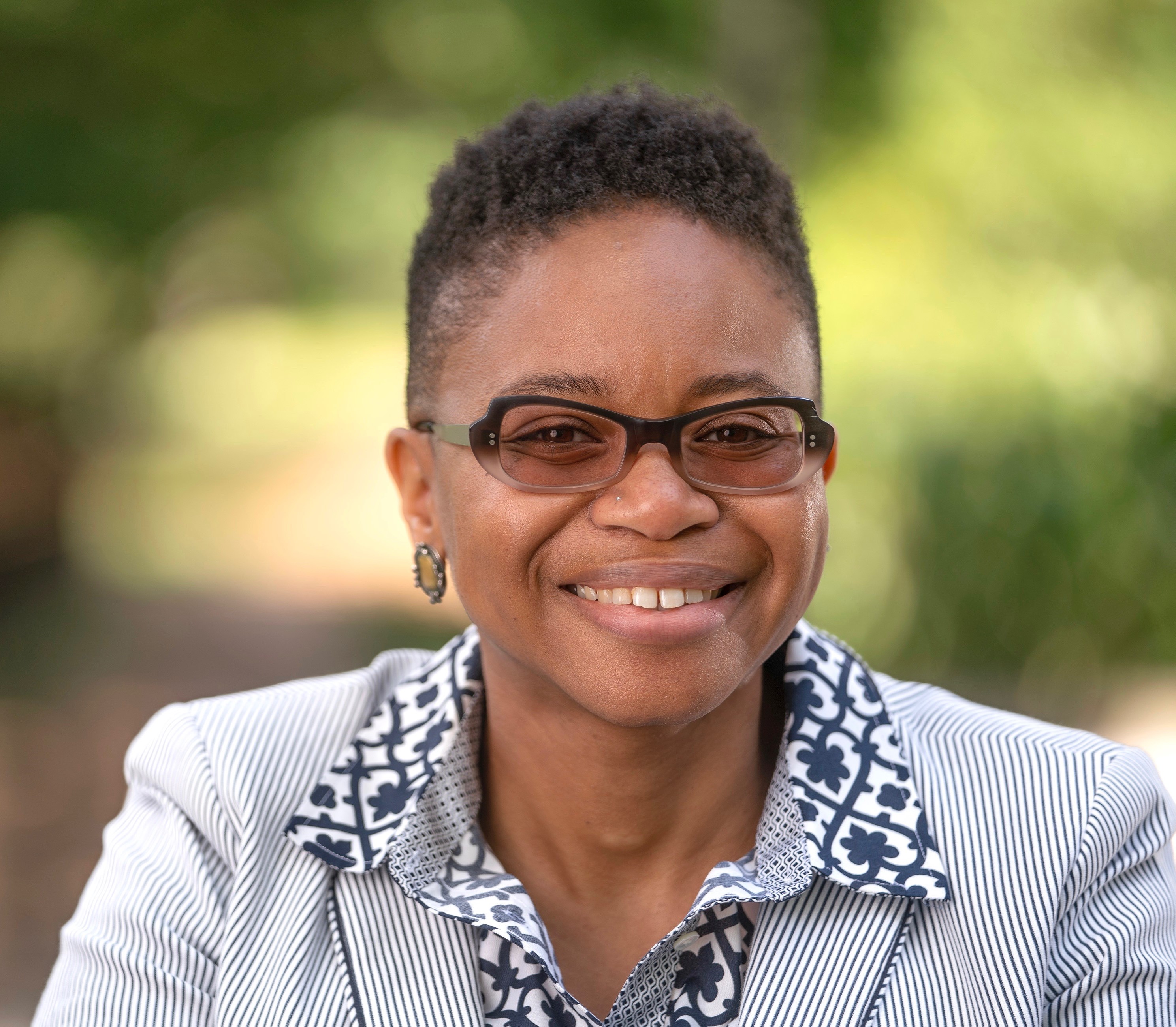 |
*New* Opportunity for funding: French-American Research Collaborations Related to the SDGs (Due 2/29/24)
The Transatlantic Research Partnership aims to encourage innovative research and new collaborations that enrich French-American collaborations, with a view to supporting projects involving young researchers (post-docs, PhDs). Designed to foster forward-looking collaborative research that addresses pressing global challenges, the program supports projects related to one or more United Nations Sustainable Development Goals (SDGs). Selected projects will receive a $20,000 grant, to be shared equally between the French and the American partners over 2 years.
(read more)
*New* Call for Abstracts: The 2024 Add Health Users Conference (Due 2/29/24)
Add Health is now accepting abstracts for the 2024 Add Health Users Conference on Monday, June 17th, and Tuesday June 18th 2024. Any papers using Add Health data are welcome, including those with substantive or methodological topics. Abstracts must be submitted by Thursday, February 29, 2024, at 11:59 p.m. EST. Please use the abstract submission form on the conference website to submit your abstract. For more information, view the full Call for Papers.
(read more)
*New* Announcing the next round of the Royalty Research Fund (RRF) (Due 3/4/24)
The Office of Research invites applications to the next round of the Royalty Research Fund (RRF) grant program. Proposals are due to RRF Monday, March 4, by 5:00 PM. Departments and Colleges/Schools may have earlier deadlines, so all applicants are advised to check with their program’s administrative staff. Awards will be announced by June 15, 2024. The purpose of the RRF is to advance new directions in research, particularly:
- In disciplines for which external funding opportunities are minimal.
- For faculty who are junior in rank.
- In cases where RRF funding may provide unique opportunities to increase applicants’ competitiveness for subsequent funding.
(read more)
|
 |
|

